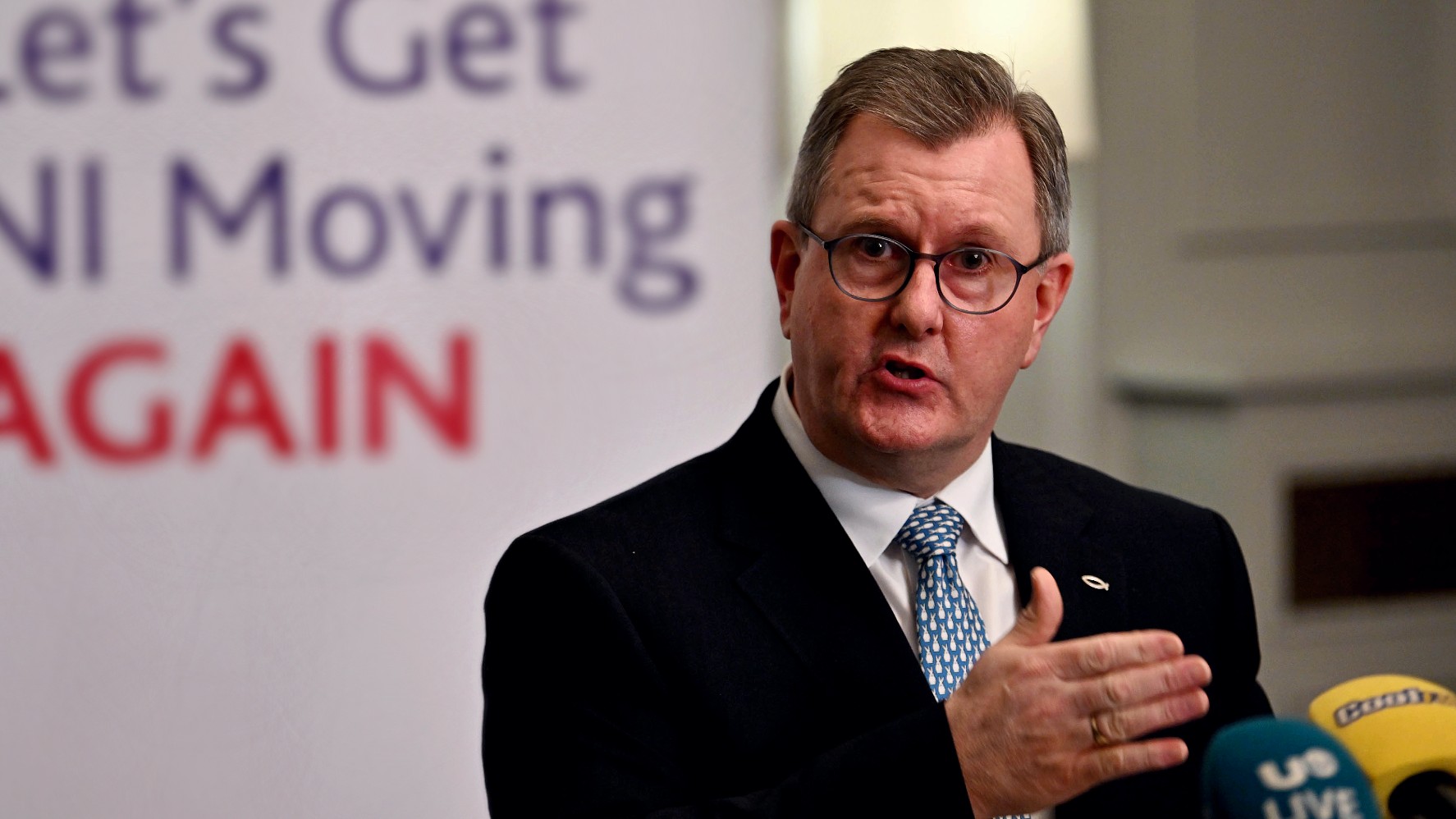Stormont power-sharing in sight: 'good news' for Northern Ireland?
Unionists vote to end two-year boycott after agreeing legislative package to address post-Brexit trading arrangements

A free daily email with the biggest news stories of the day – and the best features from TheWeek.com
You are now subscribed
Your newsletter sign-up was successful
The Democratic Unionist Party (DUP) has agreed to restore power-sharing in Northern Ireland, ending two years of political deadlock.
In a press conference in the early hours of this morning, the DUP leader Jeffrey Donaldson said his party's executive had voted to end its boycott at Stormont after agreeing a legislative package with the Westminster government that addresses unionists' core complaints about the Windsor framework.
The DUP collapsed the Northern Ireland Assembly in February 2022 in protest at post-Brexit trading arrangements that it said undermined Northern Ireland's position in the UK. The impasse left civil servants to run the country "on a form of auto-pilot amid a fiscal crisis, crumbling public services, strikes and doubts about whether devolved government would ever return", said The Guardian.
The Week
Escape your echo chamber. Get the facts behind the news, plus analysis from multiple perspectives.

Sign up for The Week's Free Newsletters
From our morning news briefing to a weekly Good News Newsletter, get the best of The Week delivered directly to your inbox.
From our morning news briefing to a weekly Good News Newsletter, get the best of The Week delivered directly to your inbox.
Tuesday morning's breakthrough paves the way for Sinn Féin's Michelle O'Neill to become first minister (the first Irish republican to hold the top position), with a DUP member appointed to the less prestigious post of deputy first minister.
'About 10 things that could still go wrong'
Northern Ireland Secretary Chris Heaton-Harris, who presided over months of tense negotiations with the DUP aimed at restoring power-sharing, called the move "a welcome and significant step".
But for others in London, Donaldson's statement was viewed with a "touch of caution", reported Politico. "This is obviously good news, but this is only one step and there are about 10 things that could still go wrong," one UK official told the news site. "Put it this way, we were expecting a statement at 10.30pm and it didn't come until nearly 1am. That says something about what the people in the room think about the deal."
What looks to have finally swayed the DUP executive was not the issue of Brexit but rather the damage continued obstruction of democracy was doing to the unionist cause. "We must not allow republicans to perpetuate the myth that Northern Ireland is a failed and ungovernable political entity," Donaldson said, arguing that an empty Stormont fuels republicans' demands for a referendum on unification.
A free daily email with the biggest news stories of the day – and the best features from TheWeek.com
'DUP sellout'
There remains "deep divisions" within unionism, said the Belfast Telegraph. Donaldson's victory, "and possibly his leadership", said The Guardian, will "be tested in the coming days by hardliners who consider the deal a betrayal that will weaken the union, raising the prospect of a party split".
Around 50 protesters waving Union Jacks picketed Monday's meeting with signs reading "Stop DUP Sellout".
Mel Lucas, from the Traditional Unionist Voice party, told the Belfast-based News Letter that Jeffrey "seemed to be very angry in Westminster last week about other unionists holding him to account".
"But he really needs to be angry with the British government for betraying unionist people and not having the unionist people as equal citizens in the UK," Lucas said.
Another prominent loyalist, Jamie Bryson, appeared to have had sources at the supposedly confidential gathering of the executive, during which he live-tweeted: "There's only one betrayal, and it is of the mandate given to the DUP."